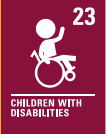The My Thinking/Functional Living framework is split into 3 focused strands which aim to give pupils the opportunity to develop:
Skills to Work it Out
Pupils learn mathematical functional skills that will help them to understand and navigate the world around them. They engage in a variety of practically-based activities designed to support them to be as independent as possible in their daily lives and for the future. Pupils learn the skills to work things out in both the classroom and other types of environments, such as the kitchen and home. Mathematical functional skills are embedded throughout the school day. Consistency of teaching is ensured through the use of the White Rose scheme of work.
Functional Skills
Pupils learn the skills they need to prepare them for adult life. They are given the opportunity to take their learning outside of the classroom, to go out into the community and to learn in real-life situations. They are given the tools to be able to develop their own independence in relation to both their private life and when out in the community. By going out into the community, pupils learn about diversity and about tolerance of others. Pupils learn skills for the home and workplace, equipping them with functional skills that they can take forward into adulthood.
Investigating and Exploring
Pupils are provided with the opportunity to explore a range of different environments, to develop a sense of awe and wonder at the world around them and learn the skills they need to solve problems and think critically. They have access to a wide range of outdoor activities and learn skills for the home and workplace. They have the opportunity to experience and care for plants and animals, which helps pupils to develop an understanding of how to care for others.
At KS4 and KS5, the curriculum area of My Thinking develops into Functional Living, where pupils continue to build upon their skills and knowledge, laying the foundations for them to lead happy, independent, fulfilling lives into adulthood.
|
My Thinking / Functional Living
|
|
Skills to Work it Out
|
Functional Skills
|
Investigating & Exploring
|
|
|
|
|
|
|
|
- Reasoning / Critical thinking
|
|
|
|
|
|
|
|
|
|
|
|
|
|
|
|
|
|
|
|
|
|
|
|
|
|
|
|
|
|
Subject Story: My Thinking / Functional Living
|
Our Agreed consistencies for My Thinking/Functional Living are:
- Practical tasks help pupils learn the skills to work things out in both the classroom and in other living environments such as the kitchen and home.
- Teaching of functional skills that prepare learners for adulthood, e.g. shopping and cooking
- Routine daily opportunities to develop independent skills, e.g. putting a coat on, packing a bag, pouring drinks, buttering bagels, sorting rubbish
- Learning outside the classroom, e.g. science experiments in the forest school garden, working in the animal and horticulture area or shopping for cooking ingredients in the community
- Teaching approaches that create opportunities to explore and investigate in a range of ways, e.g. ‘Fun with Food’, sensory play
- Teaching is ambitious and meaningful, ensuring mathematical functional skills are embedded throughout the day.
- Teachers follow the White Rose maths scheme of work to ensure consistency of teaching and learning across the school.
|
If you were to walk into a My Thinking/Functional Living lesson at Stone Bay School you would see:
- Pupils engaged in practical activities e.g. through exploration and play
- Pupils investigate and are intrinsically motivated to learn, e.g. through sensory activities or scientific experiments.
- Pupils explore concepts through music and rhyme, e.g. number songs, days of the week songs, weather songs.
- Pupils learn outside in nature, e.g. forest school, beach, animal and horticulture area, Monkton nature reserve, Garden Gate (work experience)
- Pupils learn in the local community, e.g. shops, train station, bus travel, library, post office.
- Teaching that develops pupils’ engagement and a sense of awe and wonder.
|
In our My Thinking/Functional Living curriculum you will see that we value inclusion and diversity:
- The My Thinking curriculum aims for all pupils to develop key skills to become as independent as possible.
- Teaching is tailored to the strengths and needs of each individual pupil. We are ambitious for all!
- We strive for full inclusion and acceptance. Our pupils deserve this.
- Learning is supported through a variety of specialist strategies and teaching approaches to meet the needs of every child.
- Pupils are supported to effectively and successfully integrate into the local community, working towards making a positive contribution to their community and enhancing employability prospects.
|
 |
Pupils at Stone Bay School say this about My Thinking:
- “I love exploring outside”
- “I really like dancing and singing to the number songs”
- “I like building a police station out of Lego”
- “I like mixing up all the ingredients when we make pancakes”
- “I like learning about Maths”
- “I like number bonds and addition”
- “I like looking after the animals and plants”
- “I like doing experiments”
|
|
British Values and Spiritual, Moral, Social and Cultural Learning (SMSC) in My Thinking:
Spiritual – by exploring the local community, pupils learn about diversity and become tolerant of others. By having opportunities to learn outside the classroom, pupils develop a sense of enjoyment and fascination in learning about the world around them.
Moral – through being encouraged to develop curiosity, pupils are able to form their own opinions, listen to those of others and make their own choices.
Social (including British Values) – pupils are able to work, play and explore alongside others. They have access to the local community, expanding their opportunities for social interaction.
Cultural (including British Values) – pupils take part in and respond to a wide range of mathematical and scientific opportunities. They have access to visits outside of the classroom to areas of interest within the local environment e.g. forest school, beaches, parks etc. |
|
 
Article 23 – A child with a disability has the right to live a full and decent life
|



